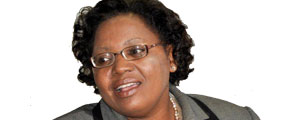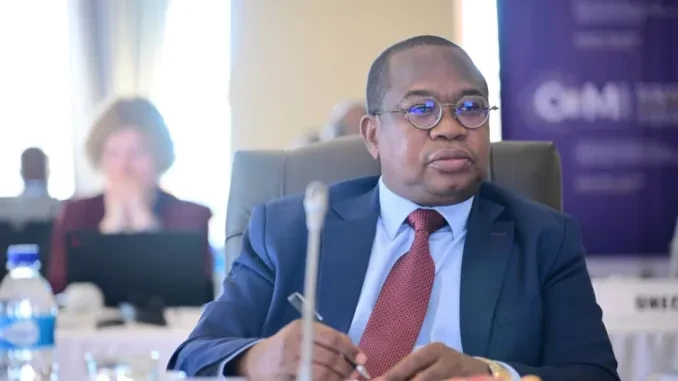
THE Securities Commission of Zimbabwe (SECZ) was formed in 2008 to regulate the country’s securities exchanges among other duties.
NewsDay Business Reporter (ND) Victoria Mtomba spoke to SECZ first chairperson Willia Bonyongwe (WB) on her re-appointment and other issues relating to the country’s capital markets. Below are excerpts of the interview:
ND: What were your achievements during your first term of office (2008-2012)? WB: The first thing is that we have managed to bring awareness about the absolute necessity for regulation to bring about transparency, accountability, fairness and integrity in the capital market. We have set up a very strong foundation by establishing an effective secretariat at the Securities Commission of Zimbabwe. We have also managed to attract some of the best brains to key positions for the secretariat, and I have confidence that the team is able to execute its critical duty of safeguarding investors and creating a more conducive investment environment. We also managed to: lfinally restructure the Zimbabwe Stock Exchange (ZSE). The lack of an independent board was always a problem with the SEC and we believe that the new independent board will ensure that the institution performs its key functions. We have also drafted market rules and regulations and are actually enforcing them seriously, thereby instilling discipline amongst players. Failure to comply with market requirements resulted in suspension of operations or cancellation of license by the commission; lwe have also instilled investor confidence through impartial regulation by SECZ. The market has retained existing investors while attracting new potential investors. Once automation is complete more investors will come on board; lwe invested in real estate and the commission operates from its own premises; lWe introduced additional compulsory courses to strengthen the calibre of capital markets for all market players and, lwe managed to set a central securities depository(CSD) and we should have one up and running by mid year all other things remaining equal. ND: What were your challenges in those years and how did you overcome them? WB: Market resistance from ZSE management and some brokers. Initially anything we tried to do was contested. By using the Act, we have to do what we have to do. We also engaged the players to make them realise that regulation was a positive thing and it was good for their business. Then of course the issue of the independent board helped greatly. ND: Apart from the disputes, what else affected your operations? WB: We faced several challenges which include: lundercapitalisation of most companies resulting in industry viability challenges hence enforcement of the capital adequacy requirements. The economic environment took its toll on some market players and they had to close shop; lmanual trading platform and back office operations that have resulted in the prevalence of fraudulent activities hence current efforts by the commission to facilitate automation and the establishment of the CSD onto the market; llimited capacity building for the majority of the licensees hence efforts to establish a financial services institute. It should be running by end of year. lLimited information disclosure by listed companies and weak corporate governance. This is still a huge problem and there is still a lot of resistance. It often results in unfairness, particularly to minority shareholders. We have now said all corporate actions must be lodged to with commission at the same time they are lodged with the ZSE. We have asked some companies to publish revised circulars and rejected some circulars. We have also worked with the ZSE listings committee to ensure full disclosure but a lot still needs to be done. ND: What are your plans for your second term of office? WB: Automation of the commission with real time surveillance systems in place for monitoring market players is one of the issues on our agenda. We also seek to improve: lcapacity building of SECZ staff members (both at secretariat and board level) for continuous professional development purposes and changing market and regulatory environment; lenforcement of corporate governance and ethical standards onto the market and information disclosure; lamendments of ZSE listing requirements; lgazetting of general securities rules covering the whole market; lMarket-wide investor education to encourage savings through capital markets participation thus closing up gaps detected by the Finscorp financial inclusion survey and; lencouraging more listings (both big and small). We hope the commodity exchange will come on board this year. There is also talk of a minerals exchange that would be most welcome. There is also room for a small cap exchange, Kenya has just opened one. We also expect a bond exchange or even the ZSE trading in bonds. ND: What progress has been made in automating the exchange? WB: The ZSE board is working flat out to automate soon. We expect it by mid-year notwithstanding the shareholder disputes. To us automation and demutualisation are separate issues. ND: How much money has been availed by government for the process to be implemented? WB: Government has appointed government-owned institutions to be part and parcel of the CSD board and shareholders, and adequate funding is assured for the CSD. As for the ZSE I am sure something can be worked out, we are soon to meet with the ZSE board and this is one of the issues we will discuss.











